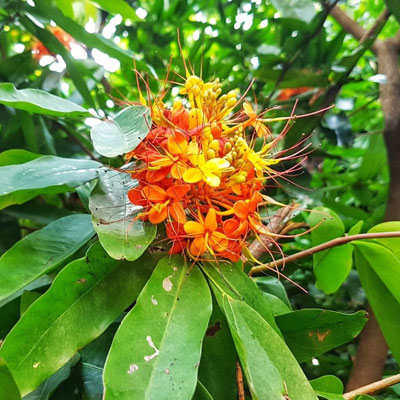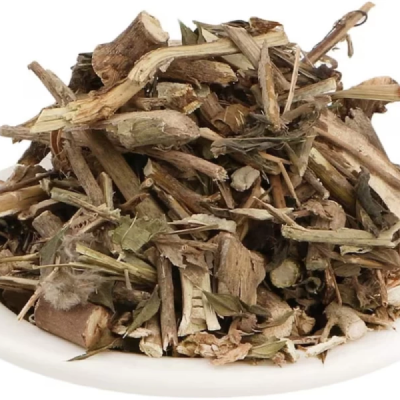Menstrual irregularities refer to any deviation from the normal menstrual cycle, including changes in the length, flow, duration, or associated symptoms of menstruation. A typical menstrual cycle lasts between 21 to 35 days, with bleeding lasting 2 to 7 days. Irregularities can indicate underlying hormonal imbalances, lifestyle factors, or reproductive health issues.
Types of Menstrual Irregularities
1. Amenorrhea:
- Primary Amenorrhea: No menstruation by the age of 15.
- Secondary Amenorrhea: Absence of menstruation for three consecutive cycles or more in someone who previously had regular periods.
2. Oligomenorrhea:
- Infrequent periods with cycle lengths exceeding 35 days.
3. Polymenorrhea:
- Frequent periods with cycles shorter than 21 days.
4. Menorrhagia:
- Heavy or prolonged menstrual bleeding.
5. Hypomenorrhea:
- Light or scanty menstrual bleeding.
6. Metrorrhagia:
- Irregular bleeding between periods.
7. Dysmenorrhea:
- Painful periods, with cramping that may disrupt daily life.
8. Premenstrual Syndrome (PMS):
- Emotional and physical symptoms occurring 1-2 weeks before menstruation.
Causes of Menstrual Irregularities
1. Hormonal Imbalances:
- Dysfunction in the hypothalamic-pituitary-ovarian axis.
- Disorders like polycystic ovary syndrome (PCOS).
- Thyroid dysfunction (hypothyroidism or hyperthyroidism).
2. Structural Abnormalities:
- Fibroids or polyps in the uterus.
- Endometriosis or adenomyosis.
3. Lifestyle Factors:
- Stress, poor diet, or excessive exercise.
- Obesity or significant weight loss.
4. Medical Conditions:
- Diabetes, adrenal disorders, or clotting disorders.
- Chronic illnesses like celiac disease or kidney disease.
5. Medications:
- Contraceptives or anticoagulants.
6. Pregnancy-Related Causes:
- Miscarriage or ectopic pregnancy.
7. Other Factors:
- Menarche (onset of menstruation) and perimenopause.
Symptoms of Menstrual Irregularities
- Changes in cycle length or duration.
- Heavy or light bleeding.
- Absence of periods.
- Pain during periods or ovulation.
- Symptoms of PMS, like mood swings, fatigue, and bloating.
Complications of Menstrual Irregularities
- Infertility: Due to ovulation problems.
- Anaemia: From heavy bleeding (menorrhagia).
- Chronic Pelvic Pain: Seen in conditions like endometriosis.
- Psychological Impact: Stress, anxiety, or depression.
Ayurvedic Perspective on Menstrual Irregularities
In Ayurveda, menstrual irregularities are primarily linked to "Artava Dushti" (vitiation of the reproductive tissues) and an imbalance of the doshas:
- Vata Dosha: Governs the downward flow (Apana Vata) and is responsible for proper menstruation. Its imbalance leads to irregular, painful, or scanty periods.
- Pitta Dosha: Associated with heat and blood flow; its aggravation causes heavy or early bleeding, burning sensations, and mood swings.
- Kapha Dosha: When aggravated, it causes delayed or scanty periods, along with a sense of lethargy and heaviness.
Ayurvedic Causes of Menstrual Irregularities
- Consumption of spicy, sour, or processed foods.
- Stress, lack of sleep, or excessive physical activity
- Improper digestion leading to toxin (ama) accumulation.
- Suppression of natural urges.
Ayurvedic Treatment for Menstrual Irregularities
Panchakarma Therapies
- Abhyanga (Oil Massage): Improves circulation and balances Vata.
- Basti (Medicated Enema): Regulates Apana Vata for normal menstrual flow.
- Virechana (Purgation Therapy): Detoxifies the body and balances Pitta.
Ayurvedic Formulations
- Pushyanug Churna: For heavy bleeding.
- Rajah Pravartini Vati: Induces menstruation in cases of amenorrhea.
- Chandraprabha Vati: Regulates the menstrual cycle and boosts overall reproductive health.
- Kumaryasava: Enhances uterine health and balances hormones.
Herbal Remedies
Ashoka (Saraca indica):
Regulates menstrual cycles and strengthens the uterus.
Shatavari (Asparagus racemosus):
Balances hormones and improves fertility.
Lodhra (Symplocos racemosa):
Controls heavy bleeding and reduces inflammation.
Guduchi (Tinospora cordifolia):
Detoxifies and balances Pitta and Vata.
Dashamoola :
Relieves pain and balances Vata.
Aloe Vera :
Supports healthy menstrual flow and alleviates pain.
Dietary Recommendations
- Eat a balanced diet rich in whole grains, vegetables, and fruits.
- Include iron-rich foods like spinach, beetroot, and jaggery for anaemia.
- Avoid spicy, sour, and junk foods
Life style recommendations
- Practice stress-reducing techniques like yoga and meditation.
- Maintain a healthy weight and exercise regularly.
- Sleep adequately to balance hormonal rhythms.
Menstrual irregularities are common and can significantly affect a woman’s physical and emotional well-being. Ayurveda offers a holistic approach by addressing the root cause, balancing the doshas, and improving overall health. A combination of herbal remedies, Panchakarma therapies, diet, and lifestyle changes can help restore normal menstrual patterns and enhance reproductive health.









